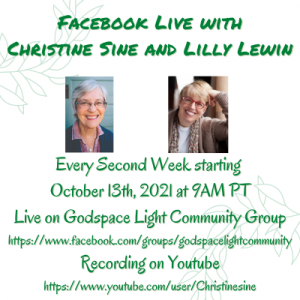by Kathie Hempel,
At the time of my birth, my maternal grandmother was in the Ontario Hospital. In those days it was still labeled as the hospital for the mentally insane.
In the late ’40s and early ’50s in both the United States and Canada, wives could be placed in such institutions on their husbands’ signature alone. This resulted in many women being committed, lobotomized, and given shock treatments for no more than their husband’s weariness with the marriage. Were they not mentally unstable when they entered, they certainly had depression, anxiety, and trauma when they left.
American actress Glenn Close has said, “What mental health needs is more sunlight, more candor, and more unashamed conversation.”
This is particularly true in the Christian community, where we can tend to quote scripture and feel we have answered the call to care. Scripture is helpful, but not for one in the throes of a panic or anxiety attack. “My peace I give you” does little to comfort or reassure one speaking to a portrait of Jesus on the Sunday School classroom wall, during a schizophrenic trance, believing he is Satan.
Ignoring the woman crying uncontrollably during the service or escorting her from the room does not impart God’s love. Some will even go as far as to say such as these don’t belong in church. Nor, they will say, does the addict hiding out in the bathroom, the man smelling of last night’s drink, or the woman whose depression had her seek solace in the arms of a married man.
Scriptures are wonderful to comfort and heal. However, in situations such as the above, we best first use them to correct our attitudes.
1 Samuel 16:7 (ESV): For the Lord sees not as man sees: man looks on the outward appearance, but the Lord looks on the heart.
Mental illness is not heart disease.
Matthew 7 (NIV): For in the same way you judge others, you will be judged and with the measure you use, it will be measured to you.
World Mental Health Day 2021 is tomorrow. As Christians, we first pray. A good one to pray is the third step prayer used by those who practice 12 Step Programs, where they know they first must heal themselves and their relationships with others to be of benefit in this world.
“God, I offer myself to Thee – to build with me and to do with me as Thou wilt. Relieve me of the bondage of self, that I may better do Thy will. Take away my difficulties, that victory over them may bear witness to those I would help of Thy Power, Thy Love, and Thy Way of life. May I do Thy will always!”
The Diagnostic and Statistical Manual of Mental Disorders lists nearly 300 different disorders and variants. Many sufferers fall into more than two or three categories. Over 970 million people worldwide have been diagnosed. Approximately 1 in 5 individuals in North America–26% of Americans 18 and older, 34% of Gen Z, 1 in 6 children–are diagnosed, and those are just the ones we know about. Among the unemployed, rates are as high as 79% – 90% in those who are not working due to a mental health issue.
Categories range from anxiety and other mood disorders to trauma-related disorders like PTSD, substance abuse disorders, eating disorders, and personality and psychotic disorders. Many people we meet during the day at our jobs, out shopping, in our book clubs, our churches, online groups, and our own homes are or should be diagnosed to get help. Some can’t because of the high cost of insurance. Some are obviously ill. Most are not.
Often, we don’t want to talk to them. We are capable of a “now, now; have a cup of tea” response. Yet they need our help.
Mental illness is not something we can ignore, nor control on our own. However, we can offer our ear in addition to our prayers for those so desperate not to be shunned. Some need simple practical help to fill out required paperwork, help to understand finances, or need an advocate so they can access the right help.
For ourselves, we need to pray for tolerance, patience, and the desire to serve those who suffer. And for the courage to speak when the ill one is us.
Hugh Prather, author of Notes to Myself, wrote, “My anxiety does not come from thinking about the future, but from wanting to control it.”
As with many other life-threatening diseases, some will never recover. That does not mean we turn our backs.
Galatians 6:2 (ESV) requires that we “bear one another’s burdens, and so fulfill the law of Christ.” Selah.
 Join Christine and Lilly for the next session of Facebook Live on October 13th, 2021 at 9am PT. If you are not able to join live, you can check out the recording on YouTube later.
Join Christine and Lilly for the next session of Facebook Live on October 13th, 2021 at 9am PT. If you are not able to join live, you can check out the recording on YouTube later.

